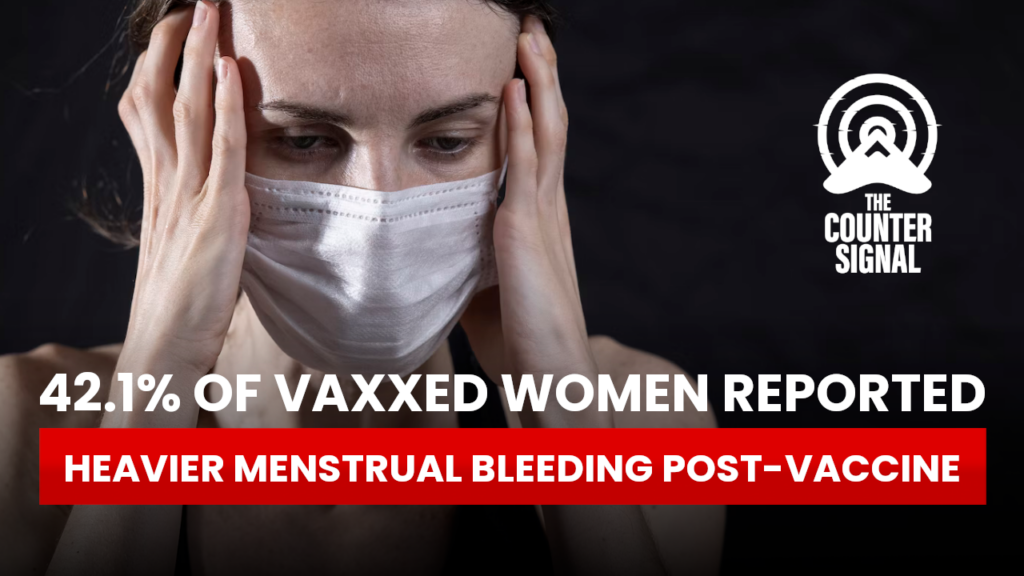A study published in July found that 42.1% of women who got a COVID vaccine reported heavier than usual menstrual bleeding following the jab.

According to researchers, both women who menstruate and women who do not usually menstruate reported heavier than usual periods or “breakthrough bleeding” following inoculation with COVID vaccines.
Out of a sample size of 39,129 fully vaccinated women, 42.1% reported heavier menstrual flow after vaccination, 14.3% reported not having a heavier menstrual flow, and 43.6% reported no change.
The study further found that 71% of women on long-acting contraceptives, 39% of people taking artificial hormones, and 66% of postmenopausal women reported breakthrough bleeding.
“We found that increased/breakthrough bleeding was significantly associated with age, systemic vaccine side effects (fever and/or fatigue), history of pregnancy or birth, and ethnicity. Generally, changes to menstrual bleeding are not uncommon or dangerous, yet attention to these experiences is necessary to build trust in medicine,” researchers write.
Women reported noticing changes in their period one to seven days after taking a vaccine, with 31.4% reporting changes within a week after their first dose and 37% seeing changes after their second. 25.9% of women reported changes in week two after their first jab, while 23.6% reported changes after their second jab in the second week. 29.9% reported changes to their menstruation even after two weeks after their first jab, while 26.8% of the double vaccinated reported the same.
Researchers found that 54.3% of respondents reported common systemic vaccine side effects (headache, nausea, fever, or fatigue) after the first jab, while 74.6% experienced common systemic vaccine side effects after the second. In addition, 40.6% experienced systemic side effects after both doses.
Over one-third of respondents who regularly take “gender-affirming hormone treatments” experienced breakthrough bleeding after taking the vaccine. “The majority of premenopausal respondents on long-acting reversible contraceptives (LARC) and the majority of postmenopausal respondents experienced breakthrough bleeding as well,” researchers write.
“Among regularly menstruating respondents, those who had heavier bleeding after vaccine were more likely to be older, be Hispanic/Latinx, have experienced fever and/or fatigue side effects, have a lighter typical menstrual flow, have been pregnant, and/or have given birth.”









